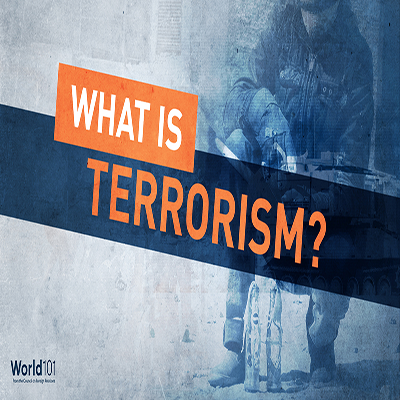Latest Lectures
Description
Jihad is one of the most controversial topics of the modern era, from the muslim world to the western world, there is widespread confusion regarding the meaning of Jihad and what it entails. However, if one was to look at the classical fiqh manuals, they would find little to no difference of opinion regarding this topic.
Jihad linguistically means to strive and to expend one's energy.
In Lisan al-Arab it states:
Fighting the enemy. It involves using all effort in words and deeds.
Mujam matn al lughah:
Jihad is commonly used to refer to waging war for the sake of Al-haqq (the truth).
However, in Islam there is the linguistic meaning of the word and the Shari' meaning, with the second taking precedence.
In Islamic terminology it means:
Calling towards the true religion and fighting with one’s soul and wealth against those who reject it. (Al Inayah Sharh al Hidayah (Hanafi))
Jihad is fighting. (Al Sheerazi in al Muhadhab (Shafi’i))
Jihad is a Muslim waging war against a non-Muslim who has no peace agreement with Muslims and the fighting is for the sake of the word of Allah to prevail. Jihad is also fighting the non-Muslim who attacks Muslim territory and it is also the Muslims attacking the non-Muslims in their land. (Mawahib al Jaleel fi Sharh Mukhtasar Khalil (Maliki))
It must be said that Jihad is a comprehensive term and it can be applied to any effort that is exerted for the sake of Allah.
Ibn al-Qayyim (رحمه الله) states that there is alltogether thirteen types of Jihad:
Once this is understood, then jihad is of four kinds: Jihad al-nafs (jihad against one’s self), jihad al-Shaytaan (jihad against the Shaytaan), jihad against the kaafirs and jihad against the hypocrites.
Jihad al-nafs (jihad against one’s self) is of four kinds:
1 – Striving to learn the teachings of Islam without which one cannot attain success and happiness in this world or in the Hereafter; if this is missing then one is doomed to misery in this world and in the Hereafter.
2 – Striving to make oneself act in accordance with what one has learned. Simply knowing without acting, even though it may not cause any harm, is not going to bring any benefit.
3 – Striving to call others to Islam, teaching those who do not know about it. Otherwise one will be one of those who conceal that which Allaah has revealed of guidance and teaching, and it will not benefit him or save him from the punishment of Allaah.
4 – Striving to bear patiently the difficulties involved in calling people to Allaah and the insults of people; bearing all that for the sake of Allaah.
If a person achieves all these four levels, then he will be one of the rabbaaniyyeen (learned men of religion who practise what they know and also preach to others. Cf. Aal ‘Imraan 3:79). The salaf were agreed that the scholar does not deserve to be called a rabbaani unless he knows the truth, acts in accordance with it and teaches it to others. Whoever teaches, acts in accordance with his knowledge and has knowledge, he will be called great in the kingdom of heaven.
Jihad against the Shaytaan is of two types:
1 – Warding off the doubts that he stirs up to undermine faith.
2 – Striving against him to ward off the corrupt desires that he provokes.
The first jihad is followed by certainty of faith, and the second is followed by patience. Allaah says (interpretation of the meaning):
“And We made from among them (Children of Israel), leaders, giving guidance under Our Command, when they were patient and used to believe with certainty in Our Ayaat (proofs, evidences, verses, lessons, signs, revelations, etc.)”
[al-Sajdah 32:24]
Allaah tells us that leadership in religion is attained through patience and certainty of faith. Patience wards off desires and certainty wards off doubts.
Jihad against the kaafirs and hypocrites is of four kinds: with the heart, the tongue, one’s wealth and oneself. Jihad against the kaafirs is more along the lines of physical fighting whereas jihad against the hypocrites is more along the lines of using words and ideas.
Jihad against the leaders of oppression and innovation is of three kinds:
1 – Jihad with one's hand (i.e., physical jihad, fighting) if one is able. If that is not possible then it should be with one's tongue (i.e., by speaking out). If that is not possible then it should be with one's heart (i.e., by hating the evil and feeling that it is wrong).
These are the thirteen types of jihad, and “Whoever dies without having fought or having resolved to fight has died following one of the branches of hypocrisy.” (Narrated by Muslim, 1910).
(Zaad al-Ma’aad, 3/9-11)
From the contemporary scholars Shaykh Ibn Baz (رحمه الله) summed it up as follows,
“Jihad is of various kinds, with one’s self, one's wealth, by making du’aa’, by teaching and guiding, by helping to do good in any way. The greatest form of jihad is jihad with one’s self (i.e., going oneself and fighting), followed by jihad with one's wealth, jihad by speaking out and guiding others. Da’wah is also part of jihad. But going out oneself to fight in jihad is the highest form."
(Fataawa al-Shaykh Ibn Baaz, 7/334, 335)





















